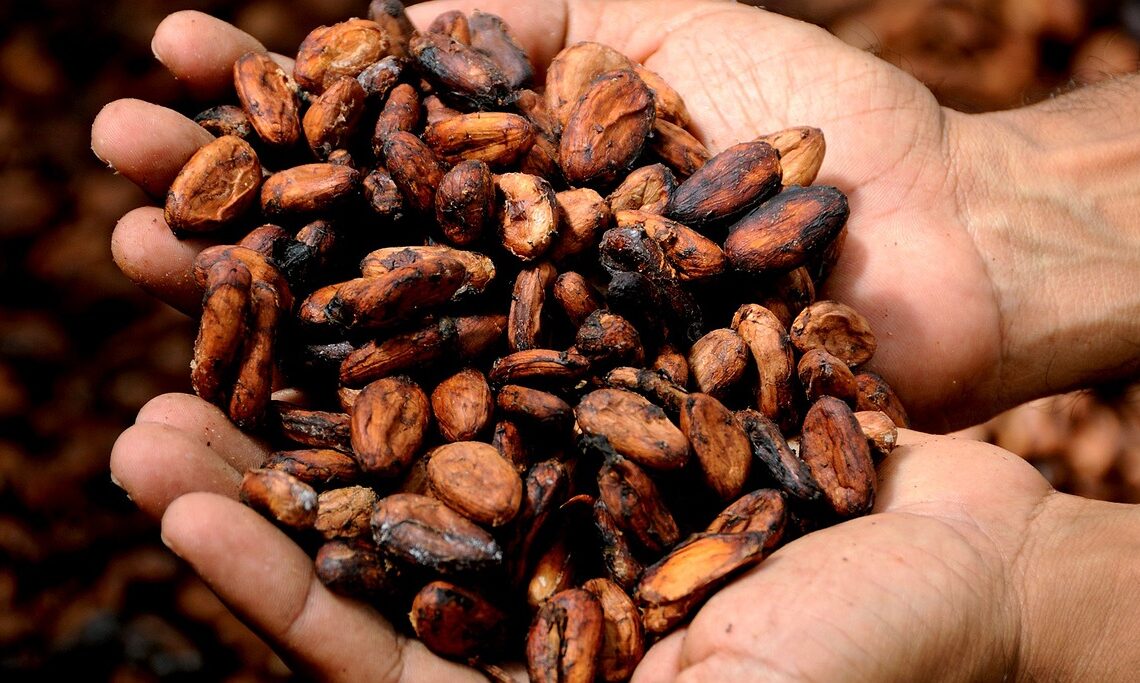
- The government increased the cocoa producer price from GH¢3,228 to GH¢3,625 per 64kg bag for the 2025/2026 season.
- The NPP’s Akan Constituency Communications Officer, Frank Adjei-Worlanyo, criticised the increment as disappointing.
- He accused the government of breaking its past promises to raise cocoa prices to GH¢6,500–GH¢7,000.
- Adjei-Worlanyo said the increase contradicts what current leaders once condemned as “peanuts.”
- He warned that political trust could erode if the government continues to break campaign pledges.
The recent cocoa price adjustment by the government has triggered sharp criticism from within its own ranks, as Frank Adjei-Worlanyo, the New Patriotic Party’s Communications Officer for the Akan Constituency, labelled the increase a “betrayal” of promises made to Ghana’s cocoa farmers.
The government announced on October 2, 2025, that the producer price for cocoa would rise from GH¢3,228 to GH¢3,625 per 64kg bag for the 2025/2026 season. Finance Minister Dr. Mohammed Amin Adam said the new rate was meant to ease the economic burden on farmers amid global price fluctuations.
But Adjei-Worlanyo says the increment falls far short of expectations. In a statement released the following day, he reminded the government of its own campaign trail pledges, when senior party figures—including current cabinet members—criticised similar price adjustments by previous administrations and vowed to do better.
He recalled that during those campaign years, NPP leaders promised to raise the producer price to between GH¢6,500 and GH¢7,000 per bag, describing anything less as “unfair” to Ghana’s hardworking cocoa farmers.
“Those promises have evaporated into thin air,” Adjei-Worlanyo argued, insisting that what was once dismissed as “peanuts” is now being repackaged as a victory. He contended that the government’s actions have damaged its moral authority and shaken farmers’ trust.
While acknowledging fiscal pressures and unstable global commodity prices, Adjei-Worlanyo maintained that the government should not hide behind economic excuses. He called for a reassessment of its policies to reflect the true worth of cocoa farming to Ghana’s economy.
The new cocoa price officially takes effect on October 3, 2025, but reactions remain divided among farmer associations and observers who believe the increment does little to reflect the sacrifices of Ghana’s cocoa producers.
Reflective Opinion
The controversy surrounding the new cocoa price reveals a deeper crisis — one of integrity, not economics. Cocoa has long been more than a crop in Ghana; it is the nation’s lifeblood, the reason schools are built, roads are tarred, and generations have been educated. Yet, every administration approaches it like a political chess piece — a seasonal talking point for votes rather than a sector deserving of real transformation.
Frank Adjei-Worlanyo’s criticism may come from within the ruling party, but his words echo a sentiment long shared by farmers across the country: promises are plentiful during elections but scarce when it’s time for delivery. The government’s new rate of GH¢3,625, while presented as progress, hardly matches the reality on the ground where the cost of fertilizer, labour, and living expenses have doubled.
At the heart of this debate lies a painful irony. Successive governments celebrate modest price hikes as achievements, yet Ghana continues to export raw cocoa beans with minimal value addition. The wealth generated abroad dwarfs what the farmers earn at home. The same farmer who wakes before dawn to harvest cocoa pods can barely afford to buy a bar of chocolate produced from his own toil.
The issue, therefore, is not merely about numbers but about justice. The true betrayal is not only in failing to meet campaign promises but in maintaining a system that perpetuates poverty among those who sustain the economy’s backbone.
If Ghana truly values its farmers, it must go beyond seasonal price adjustments and commit to structural reforms — investments in processing, subsidies, fair trade systems, and export diversification. Otherwise, every “increment” will remain a hollow gesture — a temporary balm for a deep wound that keeps reopening every election cycle.
The government may claim fiscal restraint, but farmers have shown fiscal endurance for decades. The real question now is not whether cocoa prices have increased, but whether Ghana has finally learned to value the hands that cultivate its gold.